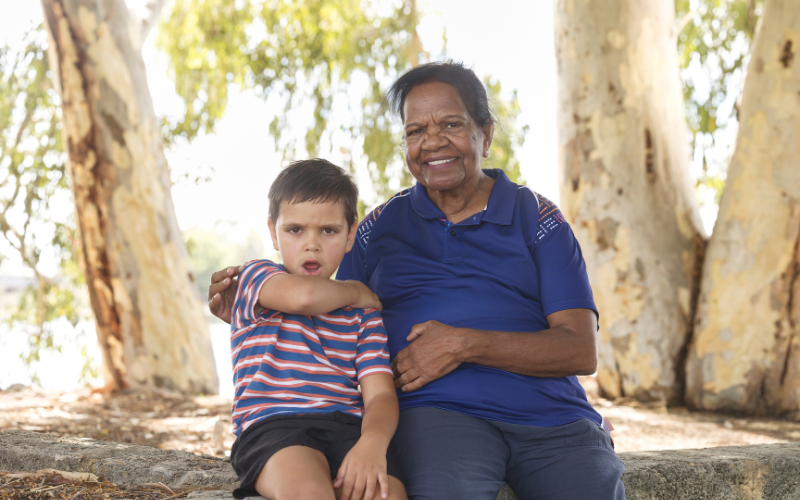Search
Search Giving at The Kids.
Bright Blue The Police Commissioner's Fund for Sick Kids has generously outfitted the The Kids brain tumour lab with a cancer analysis suite.
As a not-for profit child health research organisation we rely on the generosity of our partners, communities and supporters to improve the health, development and lives of children through excellence in research.

News & Events
Perth campaign aims to raise awareness of dangers of a chronic wet cough in Aboriginal childrenAn intensive health promotion campaign which aims to raise awareness of the dangers of a chronic wet cough in Aboriginal children launched this month in Perth.
The Beacon Project team have partnered with the world's best - eSafety Commissioner and Common Sense Media - to ensure that the Beacon cyber safety app is able to provide reviews on some of the most popular apps and games to keep you up-to-date and on top of the trends in Australia.
See the full list of stories from our donors
Research
Standardization of Epidemiological Surveillance of Invasive Group A Streptococcal InfectionsInvasive group A streptococcal (Strep A) infections occur when Streptococcus pyogenes, also known as beta-hemolytic group A Streptococcus, invades a normally sterile site in the body. This article provides guidelines for establishing surveillance for invasive Strep A infections. The primary objective of invasive Strep A surveillance is to monitor trends in rates of infection and determine the demographic and clinical characteristics of patients with laboratory-confirmed invasive Strep A infection, the age- and sex-specific incidence in the population of a defined geographic area, trends in risk factors, and the mortality rates and rates of nonfatal sequelae caused by invasive Strep A infections.
Research
A systematic review of the biological, social, and environmental determinants of intellectual disability in children and adolescentsThis systematic review aimed to identify the most important social, environmental, biological, and/or genetic risk factors for intellectual disability.
Research
Nafamostat Mesylate for Treatment of COVID-19 in Hospitalised Patients: A Structured, Narrative ReviewThe search for clinically effective antivirals against the severe acute respiratory syndrome coronavirus-2 (SARS-CoV-2) is ongoing. Repurposing of drugs licensed for non–coronavirus disease 2019 (COVID-19) indications has been extensively investigated in laboratory models and in clinical studies with mixed results.
Research
ErbB4 in the brain: Focus on high grade gliomaThe epidermal growth factor receptor (EGFR) family of receptor tyrosine kinases (RTKs) consists of EGFR, ErbB2, ErbB3, and ErbB4. These receptors play key roles in cell proliferation, angiogenesis, cell migration, and in some cases, tumor promotion.
